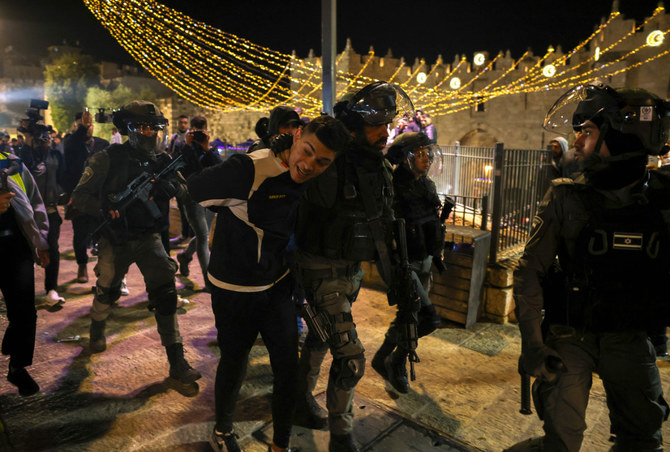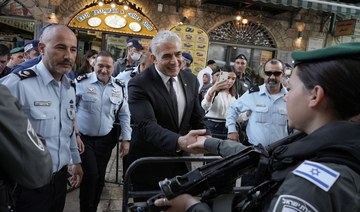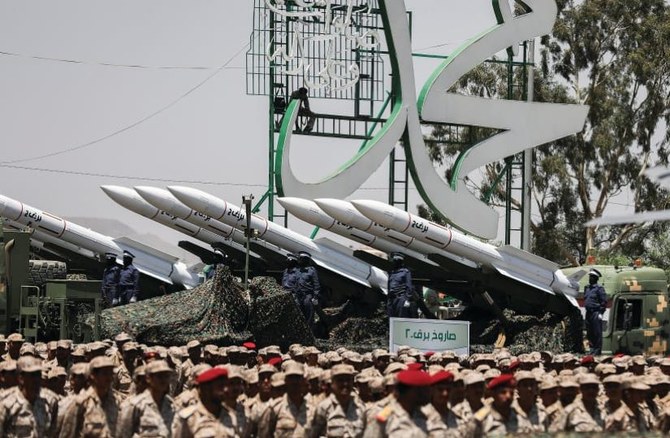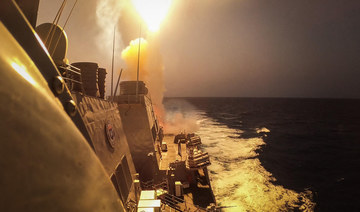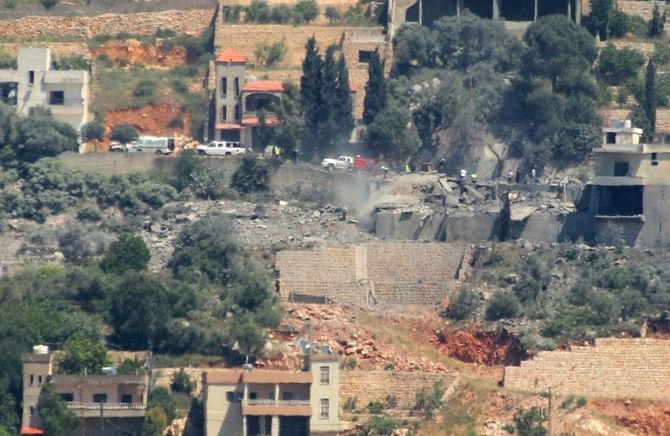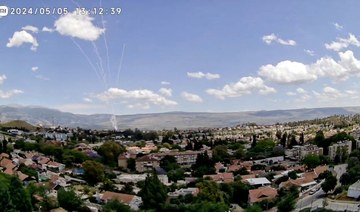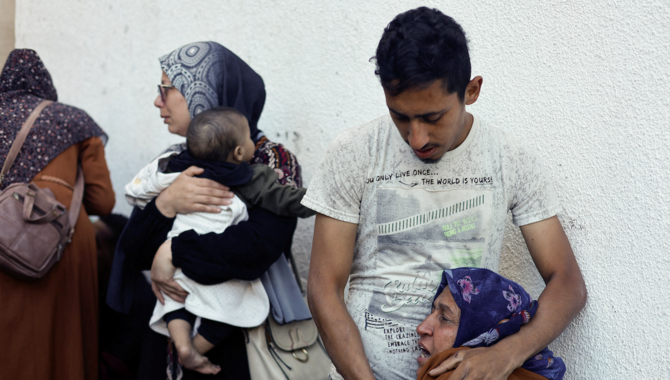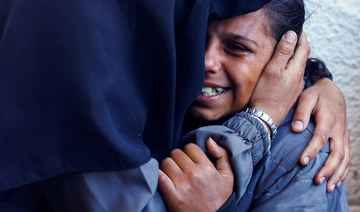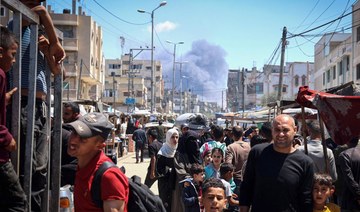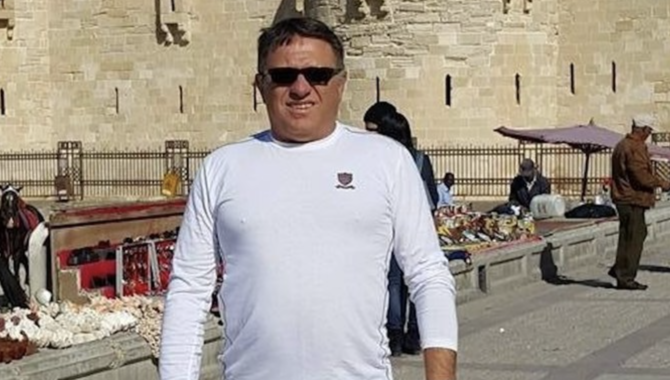RAMALLAH: The Israeli government’s decision this week to ease some of the restrictions on Palestinians in the West Bank during Ramadan has met with criticism.
“This Israeli government denies Palestinians their rights and replaces it with ‘services in exchange for security,’” Adnan Al-Damiri, a retired major general a former spokesperson for the Palestinian Authority security services and member of the Fatah Revolutionary Council, told Arab News.
During the holy month, some Palestinians have been granted permission to visit Jerusalem and pray at Al-Aqsa Mosque on Fridays. The decision, announced by Prime Minister Naftali Bennett’s administration on Tuesday, was taken after a security assessment by top military officials.
Women of all ages, children up to the age of 12 and men age 50 and over will be free to enter the mosque on Fridays during Ramadan. Men between the ages of 40 and 49 will require a valid permit.
The relaxation of restrictions is linked to the security situation and will be reassessed next week, Israeli sources said.
“The Palestinian issue is not a service issue but rather a political issue based on the right to self-determination, which the government does not want to recognize but rather confines it to the issue of services,” Al-Damiri said.
He added that Bennett’s administration is the worst government Palestinians have seen during the entire history of the Palestinian-Israeli conflict. It “is based on false and empty promises,” he said, and has done nothing — whether in relation to the economy, health or improving the lives of the Palestinians — that might differentiate it from the previous authority led by Benjamin Netanyahu.
“At a time when the Israeli government kills 57 Palestinians in three months, including six children, and continues its policy of settlement expansion and settlers’ violence against the Palestinians, it comes to sell us false slogans about granting illusory facilities,” Al-Damiri said.
Meanwhile, Israeli Defense Minister Benny Gantz met Palestinian President Mahmoud Abbas and told him that Israel takes seriously recent attacks in which 11 people were killed. This time of year “is not the time for terrorism” and must pass in peace, he said.
Gantz also said that authorities will continue to act decisively to protect settlers in the West Bank and that “Israel is ready to expand its civil procedures during and after Ramadan, as long as security and stability allow that.”
Security experts criticized the Israeli attempt to call on the Palestinian Authority to calm tensions at reduce the threat of violence, pointing out that the policies of the previous and current government have weakened the PA and its security services.
The PA forces, they said, have lost their status and respect among the public and so now that the Israelis are asking them to help control the situation they are unable to do so, even if they were willing.
The Israeli decision to ease restrictions on some Palestinians during Ramadan came amid calls from some for a complete closure of the West Bank, a crackdown on protesters, the withdrawal of entry permits from relatives of those who carry out attacks against Israel, and the increased use of force against those who refuse to submit.
“The decision was taken before the wave of recent escalation but despite those events it was decided to maintain the facilities in an attempt to contain the escalation,” Israeli defense expert and analyst Eyal Alima told Arab News.
He said that the rationale behind the decision was an attempt to keep as much distance as possible between any violent clashes that break out “and the majority of the population that wants to lead a normal life.”
Government decisions that affect the lives of civilians often fuel anger and resentment among Palestinians, he added, pushing some to confront the Israeli military, and so authorities are attempting to avoid inflaming the situation as much as possible in ways that carry little political cost to them.
“Israel is trying as much as it can to improve economic conditions, allow workers to leave, and for many years it has even ignored the exit of unauthorized people through gaps in the fence,” Alima said.
“Therefore, performing prayers at Al-Aqsa serves Israeli interests in this respect because the Palestinian public, in general, wants to perform the rituals of Ramadan, celebrate and live their lives as normal without facing the Israeli occupation.
“Israel does not lose anything and can reconsider and cancel the facilities at any moment.”



